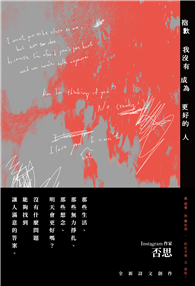In his 1969 essay, The World of Tomorrow and the Person of Tomorrow, the psychologist Carl Rogers looked ahead to the volatile, uncertain, complex and ambiguous (VUCA) world we inhabit today. He suggested that living in such a world would require a whole new set of competencies - demonstrated already by the 'persons of tomorrow' he saw around him even then. In Dancing at the Edge, Maureen O'Hara and Graham Leicester pick up the thread fifty years on. Drawing on extensive research and their own wide experience, they map the 'powerful times' in which we live, the 21st-century competencies required to thrive in this complexity and how to discover and develop them in practice. They identify: - Three emergencies: real, conceptual and existential - Three potential responses: denial, collapse and transformation - Three literacies: psychological, cultural and epistemic These literacies - or ways of reading the landscape - open the door to our 21st-century competencies, which are innate, relational, and will develop through practice in a supportive organizational or social setting. The picture that emerges is complex but remarkably clear and surprisingly hopeful - even exhilarating. Organizations of every sort from businesses to schools and healthcare, from government bodies to NGOs, can create the conditions, offer the support and provide the context within which engaged, aware, passionate and compassionate people can rise above denial and take on the challenges of today's powerful times. This is a handbook for anyone aspiring to develop their 21st-century competencies and for any organization hoping to cultivate the persons of tomorrow in its midst.
| FindBook |
有 1 項符合
Dancing at the Edge: Competence, Culture and Organization in the 21st Century的圖書 |
 |
Dancing at the Edge: Competence, Culture and Organization in the 21st Century 作者:Leicester、Graham、O’Hara、Mauree 出版社:Triarchy Press Ltd 出版日期:2019-10-01 語言:英文 規格:平裝 / 206頁 / 21.59 x 14.22 x 1.02 cm / 普通級 / 初版 |
| 圖書館借閱 |
| 國家圖書館 | 全國圖書書目資訊網 | 國立公共資訊圖書館 | 電子書服務平台 | MetaCat 跨館整合查詢 |
| 臺北市立圖書館 | 新北市立圖書館 | 基隆市公共圖書館 | 桃園市立圖書館 | 新竹縣公共圖書館 |
| 苗栗縣立圖書館 | 臺中市立圖書館 | 彰化縣公共圖書館 | 南投縣文化局 | 雲林縣公共圖書館 |
| 嘉義縣圖書館 | 臺南市立圖書館 | 高雄市立圖書館 | 屏東縣公共圖書館 | 宜蘭縣公共圖書館 |
| 花蓮縣文化局 | 臺東縣文化處 |
|
|
作者簡介
Graham Leicester is Director of International Futures Forum. IFF’s mission is to support a transformative response to the challenges of the times. Graham previously ran Scotland’s leading think tank, the Scottish Council Foundation, founded in 1997. From 1984-1995 he served as a diplomat in HM Diplomatic Service, specializing in China (he speaks Mandarin Chinese) and the EU. Between 1995 and 1997 he was senior research fellow with the Constitution Unit at University College London. He has also worked as a freelance professional cellist, including with the BBC Concert Orchestra. He has a strong interest in governance, innovation and education, is a senior adviser to the British Council on those issues, and has previously worked with OECD, the World Bank Institute and other agencies on the themes of governance in a knowledge society and the governance of the long term. Maureen O’Hara PhD is Professor of Psychology, National University, USA; President Emerita, Saybrook University, San Francisco; and Director, International Futures Forum-US. She is a licensed psychotherapist in practice for over three decades and worked closely with Carl R. Rogers in La Jolla, California - facilitating encounter groups, large group events and training psychotherapists in many countries. Her recent work explores the present and potential future impacts of global cultural shifts on psychological development and emotional wellbeing. Books include Em busca da vida, with C.R. Rogers, J.K. Wood and A. Fonseca (Summus,1983); Ten Things To Do In A Conceptual Emergency, with G. Leicester (Triarchy, 2009); and the Handbook of Person-Centered Psychotherapy and Counselling with M. Cooper, P. Schmid and G. Wyatt (Palgrave Macmillan, 2008). She is married to Robert Lucas with whom she resides in Carlsbad, California.
|











